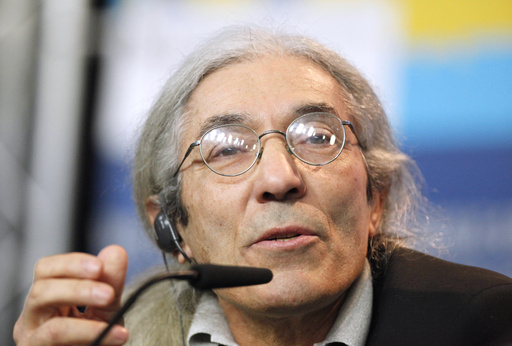
Politicians, writers, and activists are urging the release of Boualem Sansal, a French-Algerian author whose recent apprehension in Algeria highlights the increasing suppression of creative freedom within the military-governed North African nation.
The 75-year-old writer, known for his critical views on Islamism and the Algerian state, has not been in communication with friends, relatives, or his French publisher since he returned to Algiers from Paris earlier this month. Neighbors in his hometown of Boumerdes reported that he has not been seen since his arrival.
“The detention of a French national without valid justification is unacceptable,” said Jean-Noël Barrot, France’s Foreign Minister, in a statement on Wednesday.
He further emphasized that Sansal’s literature “reflects the values we hold dear and honors both of his native lands.”
During a session on Wednesday, the European Parliament expressed concerns regarding Algeria’s crackdown on free speech and unanimously called for Sansal’s “immediate and unconditional release.” While the Algerian government has not released information regarding the charges against Sansal, the state news agency APS reported that he was detained at the airport.
Sansal’s novels, although no longer officially censored, have faced bans in the past. Acknowledged for his admiration of French culture, he has garnered a diverse readership in France due to his writings on topics such as Islam’s societal role, authoritarianism, the importance of freedom of expression, and the Algerian civil war during the 1990s. His audience spans the political spectrum from Marine Le Pen of the far-right to President Emmanuel Macron, who attended Sansal’s naturalization ceremony in France earlier this year.
His work, however, has drawn backlash in Algeria, particularly from both the government and Islamists. In the past, he has received death threats stemming from his outspoken views throughout the 1990s and subsequent years.
Sansal’s situation highlights a larger trend of political prisoners in Algeria, where the optimism surrounding a protest movement that led to the resignation of the 82-year-old president has gradually diminished under the leadership of President Abdelmadjid Tebboune.
Human rights organizations have condemned the ongoing suppression of journalists, activists, and writers in Algeria. Recently, Amnesty International characterized the state of affairs as a “harsh crackdown” on fundamental human rights, including freedom of expression and peaceful assembly.
In a concerning development, authorities in Algeria have disrupted book fairs, such as the one in Bejaia, and have barred notable authors, including Kamel Daoud, the winner of this year’s Goncourt Prize, from participating in the country’s largest literary event.
“This tragic news underscores a disturbing reality for Algeria, where the concept of free expression is increasingly overshadowed by repression, imprisonment, and societal surveillance,” articulated Kamel Daoud in an editorial signed by a collective of writers in Le Point this week.
Sansal remains a contentious figure in Algeria, known for his pro-Israel stance and for drawing parallels between political Islam and totalitarian regimes in works like “The Oath of the Barbarians” and “2084: The End of the World.”
Up until now, Sansal had gone unrestrained despite his provocative themes. His arrest comes amid growing tensions between France and Algeria, particularly after France expressed support for Morocco’s claim over the contested Western Sahara territory, which has ruffled Algeria’s longstanding allegiance to the Polisario Front and its push for a referendum regarding the future of this region.
“A regime that resorts to silencing its writers, irrespective of their perspectives, reveals its own weaknesses,” stated Ali Bensaad, a French-Algerian academic, in a statement shared on Facebook.
